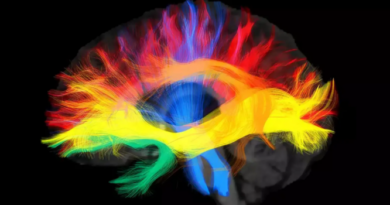Scientists Discover Thousands of Unknown Viruses in Babies’ Guts 2023
According to scientists, the presence of over 200 previously unknown viral families in the intestines of infants likely plays an essential role in protecting children from chronic diseases such as asthma and diabetes in the future.
Although it has been known for decades that the gut bacteria of young children play a crucial role in protecting them from chronic diseases later in life, little is known about the numerous viruses in the intestine.
A team from the University of Copenhagen spent five years analyzing and mapping the contents of the diapers of 647 healthy one-year-olds in Denmark.
“We discovered an unusually high number of unknown viruses in the feces of these infants. Not only were there thousands of new virus species, but to our astonishment, the viruses represented more than 200 families of undescribed viruses, according to Professor Dennis Sandris Nielsen of the university’s Department of Food Science.

This means that healthy children are exposed to a wide variety of intestinal viruses from an early age, which likely has a significant impact on whether they develop various diseases later in life.
In the research paper published in Nature Microbiology, the team discovered and mapped 10,000 viral species in the feces of children, which is ten times the number of bacterial species detected in the same children.
These viral species are distributed among 248 distinct viral families, of which only 16 were known previously.
Shiraz Shah, a senior researcher at Copenhagen Prospective Studies on Asthma in Childhood (COPAC), stated, “Because the immune system has not yet learned to separate the wheat from the chaff at the age of one, an extraordinarily high species richness of gut viruses emerges and is likely required to protect against chronic diseases such as asthma and diabetes later in life.”
In addition, the scientists identified 90% of the viruses as bacteriophages, or viruses that infect bacteria. The fact that these viruses have bacteria as hosts and do not target the children’s own cells indicates that they do not cause disease.

The remaining 10% of viruses are eukaryotic, meaning that they infect human cells. These may be both allies and adversaries for us.
“The fact that all children carry 10 to 20 of these virus types that infect human cells is thought-provoking. Therefore, there is a constant viral infection that presumably does not make them ill. We simply know very little about the true nature of the situation. I believe they are essential for preparing our immune system to recognize future infections. But it is also possible that they are a risk factor for maladies we have not yet identified,” said Sandris Nielsen.
Researchers have yet to determine the origin of the numerous viruses found in one-year-olds. They believe it comes from the environment, via dirty fingers, pets, and dirt that children place in their mouths.
Learning more about the role that bacteria and viruses play in a well-trained immune system will presumably allow us to avoid many of the prevalent chronic diseases, such as arthritis and depression, said Shah.



